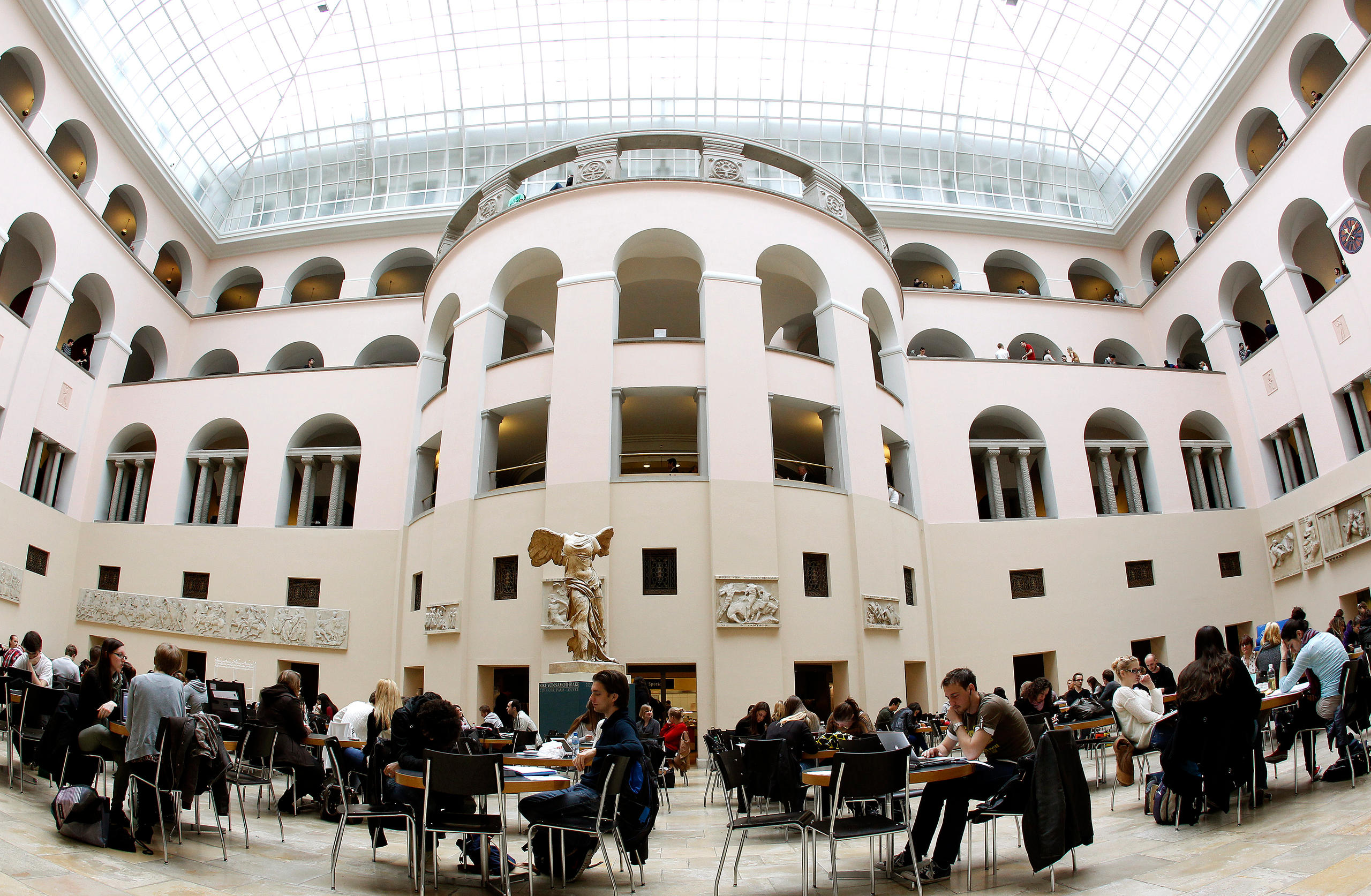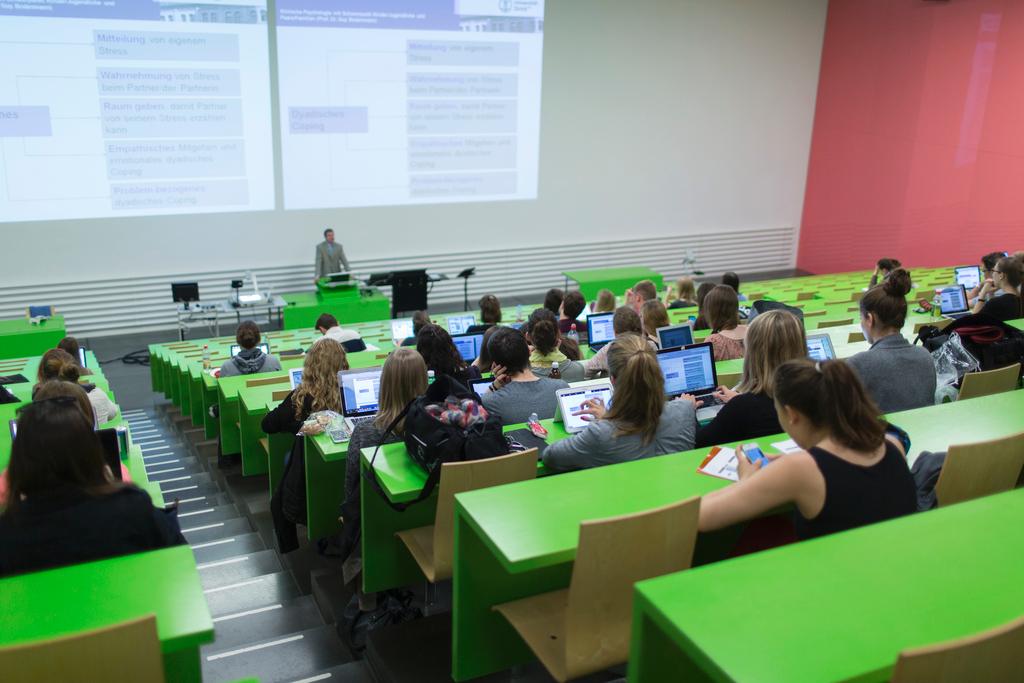Are university costs in Switzerland going the way of the US?

Debate is raging in Switzerland about whether to raise the country’s still low university fees. But statistics show that with living expenses, the real cost of studying in Switzerland is already comparable with some universities in the United States.
University study fees in Switzerland currently vary between CHF1,000 and CHF2,500 ($1,010-$2,525). However, with living costs like rent, transport, food and books, the average cost is CHF27,600 a year for a student living outside the family home, according to a 2013 study carried out by the Federal Statistical Office.External link
It can cost about the same in the United States – elite universities like Yale and Harvard excepted. The University of Minnesota,External link for example, quotes $14,186 in fees for state residents for the academic year 2016/7. Adding in living on campus and personal expenses like transport, books and clothing, this comes to $27,848 for the year, according to the university’s estimations.
However, there are crucial differences between the two systems. Overall, Swiss tuition fees are much lower than the US average, said Sabine Felder, deputy secretary general of Swiss Universities,External link which represents higher education in Switzerland.
It is hard to compare the countries. “Swiss universities are state institutions and, for the majority, financed by public funds [cantonal and federal funding]. This is in contrast, for example, to the American elite universities,” she said in an email.
She said in Switzerland fees can be up to $40,000, but are often cushioned by a loan and bursary system.
Debt
More than 80% of Swiss students are funded in some way by their families, according to the Federal Statistical Office study; 75% undertake paid work to help finance their studies. Only around 15% have a bursary or loan.
By contrast, 71% of Bachelor’s degree recipients in the US graduated with a student loan in 2015, according to an analysis of government data by Mark Kantrowitz and cited in The Wall Street JournalExternal link. The average debt a graduate will have to pay back: $35,000. The rise of student debt, which is now the second debt in households after mortgagesExternal link, is being widely debated in the US.
Melanie Gut, board member of the Swiss Students Union External link(VSS, UNES, USU) – whose own analysis also put Swiss students’ livings costs at around CHF28,000 a year – says debt is simply not so common in Switzerland because people have a lot of options open to them.
“Many people here in Switzerland are not prepared to get into debt and would rather choose a professional apprenticeship than take out loans.”
It is still possible to study later under Switzerland’s flexible system. “In my course, two out of ten people have done an apprenticeship first,” Gut said.
In the US, however, studying is seen as a passport to better employmentExternal link.
Home and away
Bartlomiej Kudrzycki, an American student studying for an Masters in Economics at the University of Zurich, says most students in the US expect to graduate with some debt. He has seen a more relaxed approach to university in Switzerland.
“I know a lot of people who are studying part-time, who are maybe even working a side job as a research assistant,” he told swissinfo.ch. “That means that they have to study for a longer period of time but that they can cover their own costs entirely by working part-time, which is completely unimaginable in the US.”
He himself chose to study in Europe because it is “really expensive to do a Masters in Economics in the US”.
But after a year in Berlin on the Fulbright programme, he is finding the living costs in Zurich pretty high. “It took me a lot to get used to paying the amount I was at the grocery store or the amount you have to pay for a coffee in town,” he said.
All in all, though, it is still cheaper to study in Zurich, he says.
Fellow American Kristy Barnes is a Fulbright scholar with the University of Bern, in the paleo-climate studies department. It’s one of the best programmes in its field, which is why she was keen to come to Bern. She is funded by Fulbright – it’s the equivalent to what it costs for one year in a state school in the US – and she finds it enough to get by in Bern.
Although she is really enjoying her time in Bern, “it’s still expensive compared with the states”, she says. She doesn’t live in the city, for example. And there are flights to factor in.
Rise in tuition fees?
But with foreign and student numbers rising and plans for cuts to federal funding, some Swiss institutions are arguing that it’s time to raise tuition fees.
“I could well foresee a rise in annual costs from CHF1,300 to CHF2,000 in the future,” Fritz Schiesser, president of the ETH board, which represents the Federal Institutes in both Lausanne (EPFL) and Zurich (ETHZ), told the Tages-Anzeiger newspaper in January.External link The fees have not been raised in 20 years, he pointed out.
On March 16, students at the EPFL protested, following an announcement that the institution wants to double study fees to CHF2,400 a year from 2017.
Some universities, like Lucerne and Neuchâtel, already have higher fees for foreign students.
Melanie Gut says it’s hard to predict how this situation will develop, but her association will fight any increase in study fees.
“We believe that education should remain a public good and be funded by the state sector, not the students themselves,” she said.

In compliance with the JTI standards
More: SWI swissinfo.ch certified by the Journalism Trust Initiative











You can find an overview of ongoing debates with our journalists here . Please join us!
If you want to start a conversation about a topic raised in this article or want to report factual errors, email us at english@swissinfo.ch.